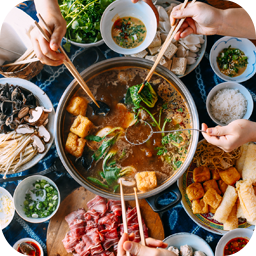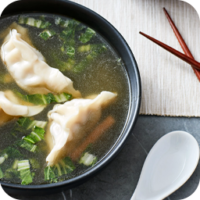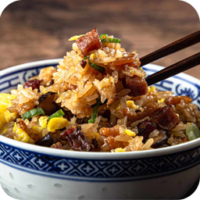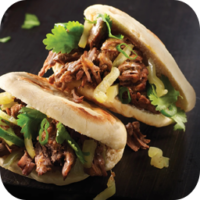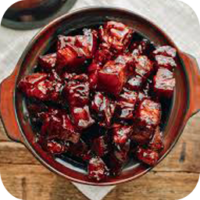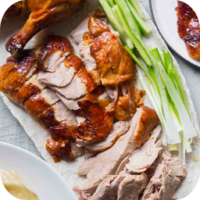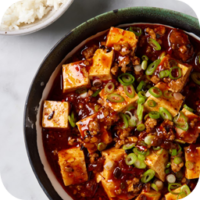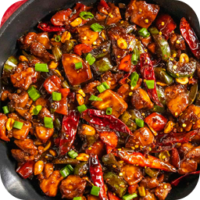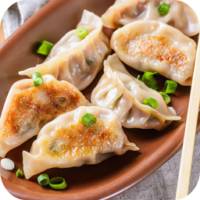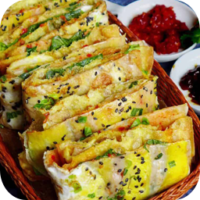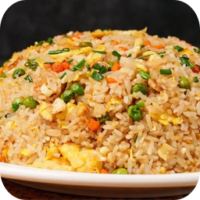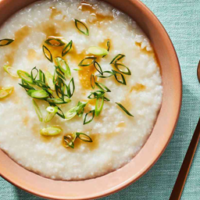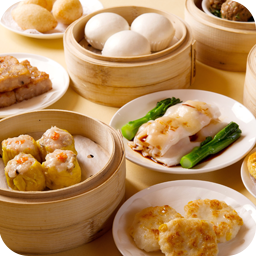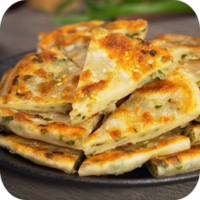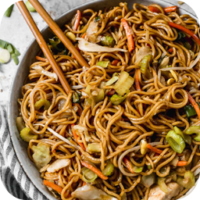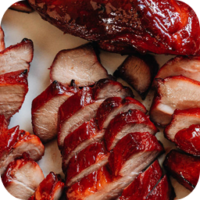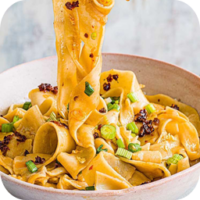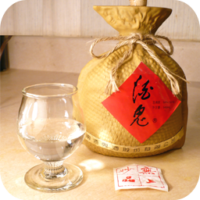Posted by theeatland
- Dec 18, 2024
- 84
- 0
Hot Pot (火锅, Huǒ Guō) is a traditional Chinese communal dish where ingredients like meats, vegetables, tofu, and noodles are cooked in a simmering pot of broth at the dining table. It is a popular and social meal, especially during colder months, and is often enjoyed with family and friends. The concept of hot pot is about sharing a flavorful experience by dipping and cooking ingredients in the broth to your liking.
Key Features of Hot Pot:
1. Broth:
- Base of the Dish: The centerpiece of hot pot is the broth, which is usually served simmering hot. There are two main types of broths:
- Mild Broth: Made from chicken, pork, or beef bones, with ginger, garlic, and other seasonings.
- Spicy Broth: Often featuring chili peppers, Sichuan peppercorns, and other spices, creating a bold, numbing, and spicy flavor.
- Dual-Sided Pot: In many hot pot restaurants, a divided pot is used to offer both a mild and spicy broth, allowing diners to choose according to their preferences.
2. Ingredients:
- Meat: Thinly sliced beef, lamb, pork, chicken, and sometimes fish or duck are commonly used.
- Seafood: Shrimp, crab, fish fillets, squid, and shellfish are also popular.
- Vegetables: Various vegetables like bok choy, spinach, mushrooms, lotus root, and sweet potatoes are included.
- Tofu and Tofu Products: Silken tofu, fried tofu, or tofu skin (yuba) are commonly added.
- Noodles: Rice noodles, egg noodles, and glass noodles are popular additions.
- Dipping Sauces: After cooking, ingredients are often dipped into personalized sauces, which can include soy sauce, sesame oil, chili oil, garlic, and vinegar.
3. Cooking Method:
- Simmering: Ingredients are added to the boiling broth and simmered for a few minutes, allowing the flavors to infuse and cook the ingredients.
- Personalized: Each diner uses their chopsticks or a slotted spoon to add their desired ingredients to the pot, cooking them to their preferred level of doneness.
4. Varieties:
- Sichuan Hot Pot: Known for its bold, spicy, and numbing flavors, using Sichuan peppercorns and chili oil.
- Cantonese Hot Pot: Often lighter, with a mild broth made from simmered meats and bones, focusing on the natural flavors of the ingredients.
- Beijing Hot Pot: Features mutton or lamb as the main protein, typically served with a thinner, clearer broth.
- Shabu-Shabu: A Japanese variant of hot pot, usually with thinly sliced beef and a lighter broth, commonly served with a sesame dipping sauce.
5. Cultural Significance:
- Hot pot is a social meal, perfect for family gatherings, celebrations, and friends coming together. The act of cooking and sharing food creates a warm, communal atmosphere.
- It is especially popular during Chinese New Year and colder months, as the steaming pot helps keep everyone warm.
- Yunnan, Sichuan, Hong Kong, and other regions have developed their own regional variations, showcasing the diversity of the dish.
6. Health Benefits:
- Hot pot is considered a healthy meal, with a variety of fresh vegetables, lean meats, and tofu. The ingredients are often cooked in broth, making them lower in fat compared to other cooking methods.
- The spices in the broth, especially in spicy hot pots, may have digestive benefits, such as improving circulation and metabolism.
7. Serving Suggestions:
- Hot pot is typically served with rice or noodles on the side to balance the meal.
- A variety of dipping sauces can be offered, allowing each person to customize their meal.
Hot Pot is more than just a meal—it’s an experience that emphasizes communal eating, sharing, and enjoying different flavors. It’s a versatile dish that can be tailored to different tastes and is enjoyed in homes, restaurants, and during festive occasions across China.
Recommended Posts
- Dec 24, 2024
- 77 read
Spring Rolls (春卷, Chūnjuǎn) are a popular Chinese appetizer or snack made...
Read Article- Dec 24, 2024
- 91 read
Soup Dumplings (小笼包, Xiǎolóngbāo) is a beloved Chinese delicacy originating from Jiangnan...
Read Article- Dec 23, 2024
- 121 read
Chinese Sticky Rice (糯米, Nuòmǐ), also known as glutinous rice or sweet...
Read Article- Dec 23, 2024
- 90 read
Rou Jia Mo (肉夹馍), often called the "Chinese hamburger," is a traditional...
Read Article- Dec 23, 2024
- 79 read
Red Braised Pork Belly (红烧肉, Hóngshāo Ròu) is a beloved Chinese dish...
Read Article- Dec 23, 2024
- 80 read
Peking Duck (北京烤鸭, Běijīng Kǎoyā) is a famous Chinese dish from Beijing...
Read Article- Dec 23, 2024
- 84 read
Mooncakes (月饼, Yuèbǐng) are traditional Chinese pastries typically enjoyed during the Mid-Autumn...
Read Article- Dec 23, 2024
- 73 read
Mapo Tofu (麻婆豆腐, Mápó Dòufu) is a famous dish from Sichuan cuisine,...
Read Article- Dec 23, 2024
- 79 read
Kung Pao Chicken (宫保鸡丁, Gōngbǎo Jīdīng) is a classic Chinese stir-fry dish...
Read Article- Dec 23, 2024
- 87 read
Chinese jiaozi (饺子) are traditional dumplings made of a thin dough wrapper...
Read Article- Dec 18, 2024
- 77 read
Jianbing (煎饼) is a popular Chinese street food, often described as a...
Read Article- Dec 18, 2024
- 79 read
Congee (粥) is a traditional Chinese rice porridge, often served as a...
Read Article- Dec 18, 2024
- 76 read
Dim Sum (点心) refers to a traditional style of Chinese cuisine that...
Read Article- Dec 18, 2024
- 84 read
Cong You Bing (葱油饼), also known as Scallion Pancakes, is a popular...
Read Article- Dec 18, 2024
- 80 read
Chow Mein (炒面), which means "stir-fried noodles" in Chinese, is a popular...
Read Article- Dec 18, 2024
- 84 read
Char Siu (叉烧) is a popular Cantonese-style barbecued pork dish that is...
Read Article- Dec 18, 2024
- 89 read
Biangbiang Noodles (Biángbiáng Miàn, 彪彪面) are a type of hand-pulled noodle that...
Read Article- Dec 18, 2024
- 75 read
Baijiu (白酒), pronounced "bye-jyo," is a traditional Chinese distilled alcoholic beverage. The...
Read Article
